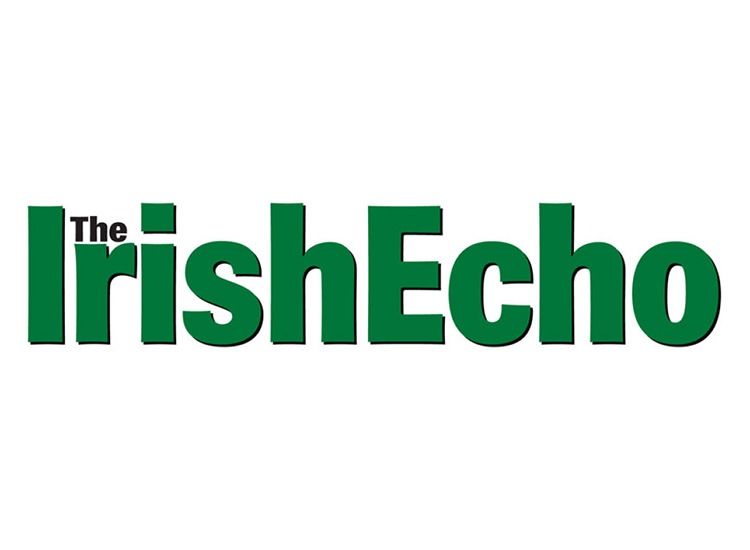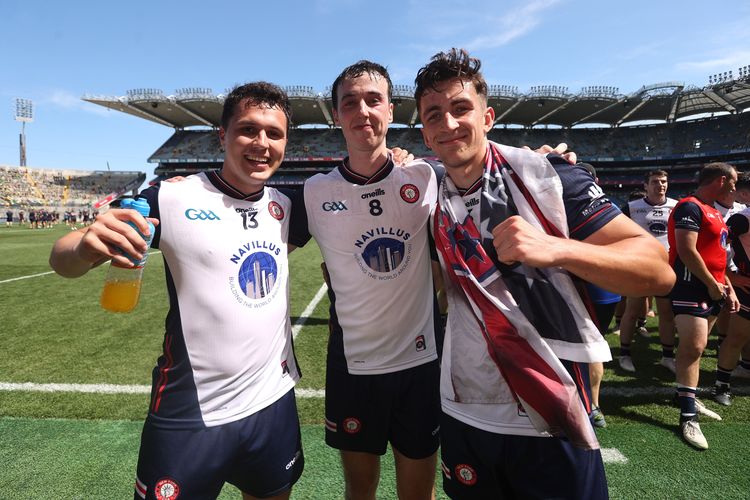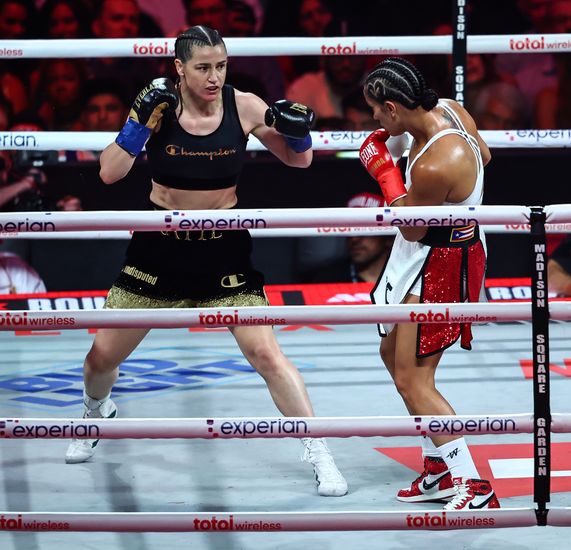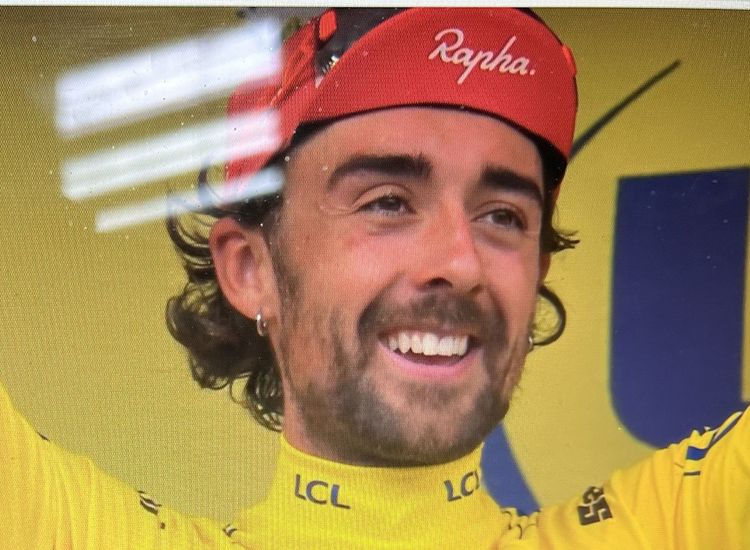Some of the attendees at the Fordham University symposium to help launch Waking The Feminists in New York on Feb. 28.
By Orla O’Sullivan
The feminists of New York theatre have awoken, showing solidarity with a protest movement that began in Ireland late last year.
Waking The Feminists officially launched in the U.S. on Monday last week, at a booked-out event hosted by the Irish Arts Center, the evening after a well-attended symposium at Fordham University, where academics and women working in theatre put their brains together to address female under-representation in the arts.
It all began in Dublin at the end of October when a set designer derided the launch of Ireland’s national theatre’s program to commemorate 1916 in a Facebook post. Lian Bell renamed the Abbey Theatre’s Waking The Nation program as Waking The Feminists, observing, amongst other things, that just one of 10 plays commissioned by the Abbey was written by a woman.
Once the discussion took to Twitter figures as influential as Meryl Streep got behind #WakingTheFeminists and a movement was born.
Now, the movement has been extended to the U.S. Lisa Tierney-Keogh, a playwright from Dublin living in Brooklyn, hopes that the New York chapter, founded in the IAC on Feb. 29, will be the first of several chapters in the U.S. based on the principles of the Irish organization.
In a nutshell, she said, “Waking the Feminists is a grassroots organization seeking equal representation for women in theatre.”
Tierney-Keogh, the organizer of the movement here, became part of the social media swell emanating from Ireland when she found herself in an impromptu photo op with Streep last November that she posted online.
Tierney-Keogh and Laoisa Sexton, another Irish playwright living in New York, encountered Streep at the opening night of “Henry IV” at St. Ann's Warehouse in Brooklyn.
Streep already knew about the campaign, thanks in part to film, theatre and TV actor Brían O’Byrne, who had been getting photos of prominent American actors and putting them on Twitter with the hash tag “#WTF "#I support Women in Theatre in Ireland".
Upon encountering the legendary actor, Sexton said, “I quickly scribbled the slogan on a cocktail napkin and we took the photo with Meryl and veteran actress Christine Baranski. Lisa put it up on Twitter and it went as far as the Guardian.”
So where to from here? The movement can already point to progress made in Ireland. The Abbey will change the offending commemorative program in the second-half of the year and it has formed a committee to address sexual inequality. Meanwhile, the Irish Film Board has committed to absolute gender party within three years.
Although #WTF is primarily focused on the theatre industry, its effects have spread. A speaker from the floor at Fordham said the movement has boosted the Irish branch of “a huge organization” for women working in film and television in the States.
Novelist Belinda McKeon said that women writers might need to consider applying gender quotas to their work while several female academics said they seek out women authors, playwrights and filmmakers for their courses.
Among them is Keri Walsh, an assistant professor of English at Fordham. She organized the Sunday event at Fordham’s Manhattan campus with the Irish Institute, inspired by a discussion of the #WTF movement she had at a party last December. (Walsh had already begun an Irish Women Writers Symposium, featuring overlooked authors, in 2014.)
Tierney-Keogh opened both the Fordham and IAC events. “There’s no going back,” she said, urging about 75 Fordham attendees, not to just wait for change, but to “kick the f****** door down!”
Monday’s “terrific” evening at the IAC was at capacity (about 100 attendees), Tierney-Keogh said, adding, “The event took more of a tone of people's visions for change and what that looks like.”
Her suggestions include compiling a library of women’s plays that have not been produced—a sore point for Irish playwrights on both sides of the Pond. Women should collaborate more, said several women who spoke at events or were interviewed by the Echo.
At least one example of theory coming into practice arose from Monday’s launch. Aedin Moloney, founder of Fallen Angel Theatre, hired Nicola Murphy, a young Dublin producer, who spoke at both #WTF New York launches. “It was like looking at myself 30 years ago,” said Moloney, whose all-female firm has, since 2003, produced plays by and about Irish and British women. “In a way,” she agreed, “I have been trying to Wake The Feminist for almost 16 years in New York.”
Underpinning the enthusiastic launches of #WTF in both Ireland and the U.S. was a disillusioning sense of déjà vu expressed by some speakers. At the Abbey, one of the founders of a Belfast company created 33 years ago to give women better roles, said she didn’t want the status quo to prevail 30 years from now. In a pun on the Easter Rising, Charabanc co-founder Eleanor Methven impressed on the young, women protestors, “You are estrogen rising.”
However, Princeton Professor Clair Wills confessed to feeling “despondent” at the end of Fordham event. “I feel we have been here before and not just once,” she added. Later, harking back to 1916, she told the Echo, “The feminist movement in the early 20th century was talking about female representation on stage.”
Sexton said she writes mainly because she wants to act and in decent roles.
But creating female characters doesn’t mean they will be seen. Playwright Honor Molloy expressed, perhaps, the greatest frustration. “I've written six full-length plays, three set in Ireland. How many have you seen?!” she rhetorically asked the Fordham audience. She went on, circling her arm about herself: “After 32 years this is the size of my theater--the size of a port-a-potty!”
Tierney-Keogh had a strong start in Ireland, having lots of relatives established in the theatre including cousin Conor McPherson, arguably Ireland’s best-known living playwright. She also got into the Abbey’s New Playwrights program.
Yet, getting produced was another story. “As a girl, I had a less than 15 percent chance of getting my work on stage in my own country’s national theatre,” she said in her opening address.
Actor Alison McKenna defended the Abbey director who came under flak, stressing at Fordham that women’s exclusion is a systemic problem. McKenna said Fiach Mac Conghail took a chance on her, agreeing to stage a play she proposed when she was a complete unknown and he was director of Dublin’s Project Arts Center. Later, during many years acting on the Abbey’s main stage, she said, “I had a good time.”
Tierney-Keogh said the scene is “very different” in the U.S. because the scale is bigger and the funding more private than public. “However, the challenges remain the same: making people aware of gender bias and equal representation of women both on stage and backstage,” she said.
Whatever else unfolds, many of the Irish ex-pats said the movement both made them aware that they felt stifled in Ireland even as it reignited their sense of being Irish.
Comic Maeve Higgins whose book, “Off You Go: Away from Home and Loving it. Sort of” came out in the month the protest erupted, said of #WTF: “It has made me love Ireland again.”
Stay tuned, or maybe that should be, watch this stage.









